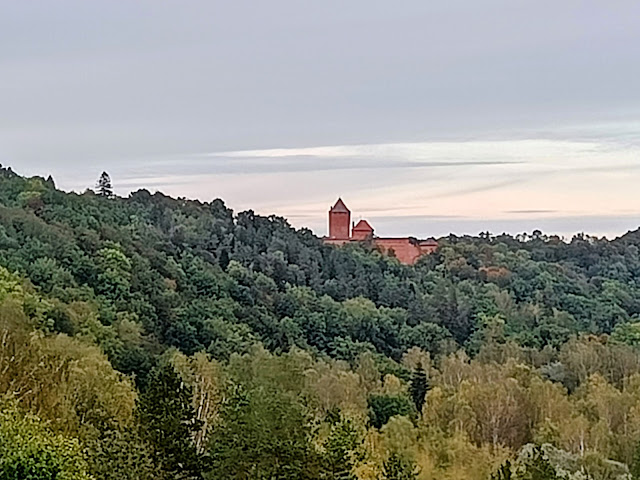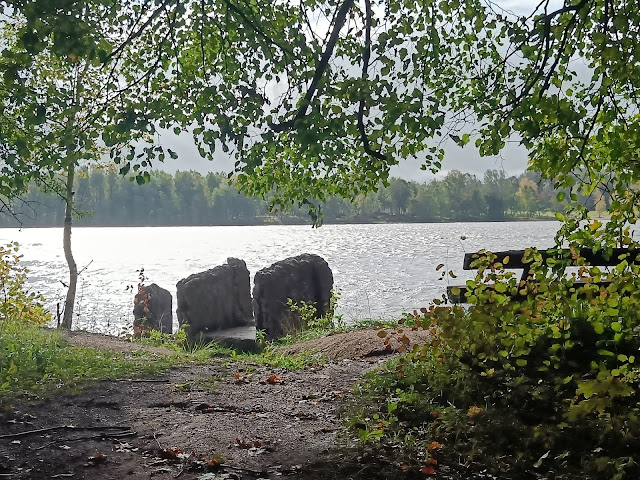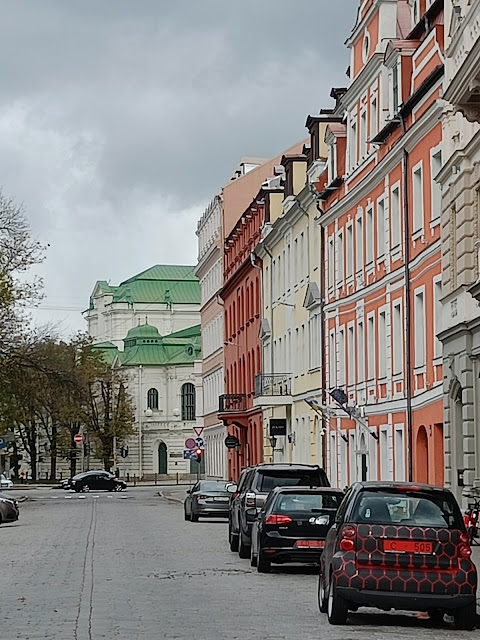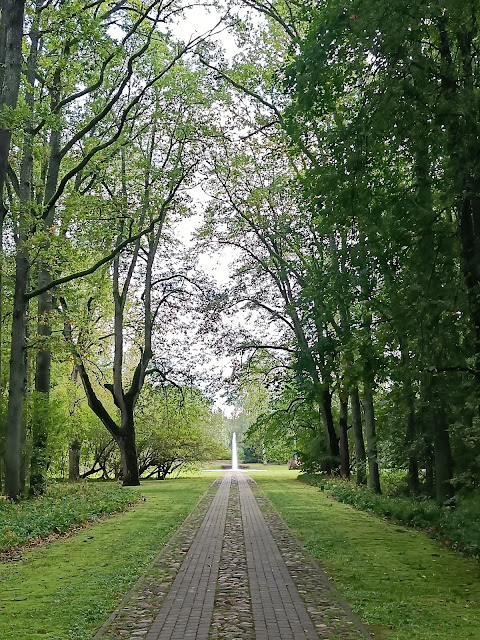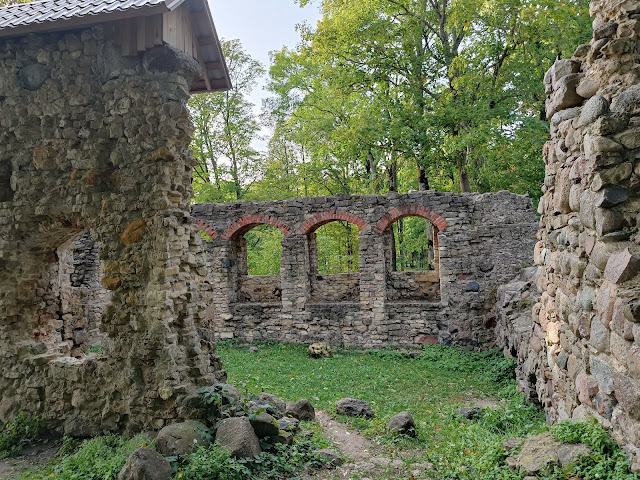Things are not improving in the world. Indeed, I am becoming increasingly frustrated with the Powers That Be on several fronts. There is the farcical situation in Scotland as from a few days time when people will be able to drop in at one of hundreds of Reporting Centres and make accusations anonymously against whomsoever they please which will be recorded by Police Scotland and, extraordinarily it seems, listed as a hate crime on one’s police offences record which would be visible on any DBS documents that have to be provided to an employer for many types of new or continued employment.
In order to make a complaint an individual appears merely to state that they have been offended by something said and this might even apply not only to something reported by a child as being said by a parent or by a fictitious character in a story.
From April it will become a crime to use “threatening or abusive” behaviour with the intention of stirring up hatred on the basis of religion, age, disability, sexual orientation and transgender identity. The definition of what comprises “threatening” or “abusive” appears to favour the perception of the reporter rather than any evidenced belief or views of the person accused. So if I lived in Scotland I could pop into one of these Centres and claim that a neighbour or just someone in the street or at work was saying things or behaving in a way that I found threatening or abusive and that would be that for the person concerned. No-one will be checking whether anything was said or not, never mind the extent to which it might be threatening or abusive or the degree to which I might wish to cause trouble for anyone by such action. It’s all crazy stuff and actually quite scary and those journalists who have had the courage to start writing about this are comparing the scene up across the border to life as it might have been with Stasi intervention and reporting my people on one another in East Germany in the 1960s. I use the word “courage” in the previous remark as you may have figured out that the journalists themselves could well find themselves reported as they, by showing disagreement or objection to the new law, could be regarded by some as expressing threatening or abusive behaviour, depending upon the words used and how they are perceived by someone north of the border. You see they could even report me for writing this as it will be visible to any demented soul in Scotland who may wish to claim that I am threatening or abusive.
What particularly strikes me about all this is not so much the content of the legislation but the fact that anything like this has been allowed to develop in Britain. Have our politicians no belief in freedom of speech any more? Are they too scared to upset someone by defending our rights to say and think what we please without fear? Is this not so fundamental as to eclipse all other matters that parliament needs to deal with? We gave Scotland devolution in order to placate demands for more independence and allow Scots to have a government more reflective of their own beliefs on the assumption that, certainly on local matters, those who live in or around an area are more likely to comprehend and deal with matters arising there. At no point did we in the United Kingdom as a whole reckon on the government at Edinburgh, whatever colour it may be, making decisions on matters such as gender, disability, sexual orientation etc. These are issues on which there probably needs to be no legislation whatsoever but, if someone can think of something that needs to have rules then those rules must surely have much wider application that just to those in a particular location within the United Kingdom.
There is a policy whereby the British government at Westminster, responsible for the whole of the United Kingdom, should step in when a law is proposed for one of the devolved countries which has implications for the nation as a whole and surely if anything needs to be so protected it is the right to free speech throughout the UK.
That I should need to question such freedom being at risk when there is a Conservative government at Westminster is all the more extraordinary. It is as if no-one really cares. With almost everyone now expecting a Socialist government to take over at Westminster within a year we are, as the old Scots bloke used to say in the Dad’s Army TV series, “all doomed, we’re all doomed.” Except it isn’t funny.
Then it is now more than two years since Russia invaded Ukraine and have effectively demolished vast areas, cities and claimed ownership of substantial tracts of the country in the East and South East. At first there was great hope when Ukraine showed just how good they were at defending themselves and, with great moral support from across the West generally, set about pushing back Russian advances. Now so many governments seem to have found excuses for not sending equipment or ammunition. The United States promised huge assistance but just a handful of guys we’ve never really heard of before in charge of making decisions have simply stopped anything happening. Promises broken left, right and centre. We all mouth our determination that Russia should not succeed but we seem to do very little about it.
The prospect does now loom that Ukraine will shrink to the parts to the West of Kyiv and south down to Odessa but maybe not even including that old city. Ukraine have virtually destroyed Russian naval capabilities in the region but nevertheless look like losing access to their own coastline and to become landlocked and unable easily to export anything as effectively as they used to.
Why are we so frightened of actually doing something which would end the nightmare for the Ukrainian people? Concerted action by a combined force representing a range of countries from Europe, United States, the British Commonwealth and whoever else cares which puts troops on the ground and equipment where it needs to be is what is needed to call Putin’s bluff. The only reason we don’t do this is because we are scared. We are scared on several levels. The obvious one is the threat that Putin and his comrades utter about flattening London with a nuclear attack or causing a tsunami by blasting somewhere in the ocean nearby that floods the British Isles. (Or for those in other countries replace London and other locations as appropriate.) We do have systems to intercept missiles. Ukraine, with its comparatively low-tech (initially, at any rate) detection systems managed to knock out the vast majority of Russian missiles of all sorts, including some pretty advanced stuff. There’s nothing very different about spotting a nuclear missile on its way and knocking that out before it causes any damage. So we should have some confidence in our defence systems and the fact that anything thrown at us would most surely see the return in Russia’s direction of a whole barrage from every NATO country which would certainly result in the complete destruction of Russia as a viable place to function militarily from that moment. We should know that Putin knows that and he simply is not going to fire anything like that at a NATO country. Perhaps we are scared that our depleted Army, Navy and Airforce resources would not function well and allow damage to be done here, even if it were not of the disastrous nuclear type. That is a reasonable fear as there is no doubt that we have far smaller troop numbers and equipment numbers than at any time before. We thought all that old-fashioned sort of fighting had stopped years ago. We watched how the US got beaten soundly in Vietnam and reckoned we wouldn’t even try. We did well to wrest back the Falklands from Argentina but they were hardly the most challenging of enemy. We stood by after 9/11, 7/7 and atrocities many since, talking about how bad everything was and how terrible terrorists are but hardly excelled ourselves in the field of battle in the few places we did have a go. No-one talks about Afghanistan any more. So, yes, Britain may not rule the waves these days but, with all the NATO allies and especially with France rampant at this particular time, we should not show such fear and we should say we need to do this. Someone needs to help Ukraine and the only way to do that is to be there and show Putin that he really will bring a whole load of shit down on himself and his countrymen and women if he does not withdraw.
There will almost certainly have to be an uncomfortable few weeks when Putin will not want to be shown as being beaten and some pride will need to be swallowed, I fear, with some gains by Russia being allowed to stand. I suggest a sort of independent control placed in the Eastern areas where, quite frankly, there is little Ukraine interest any more and the extent of devastation inflicted by idiot Russian attacks has rendered the areas pretty damn useless for anyone anyway. I would expect Crimea to be placed under similar independent control while people sort out its history and just who should govern the place. Ukraine has a lot of history on its side in that respect but there are some Russian arguments too which deserve attention before the place is either sliced up or given to one or the other. Otherwise Ukraine should be restored much as it was and it should be Russia that pays the whole rice of reparation. That cost will be huge and would need to come from duties from whatever products they sell in future as well as sale of whatever assets we have already acquired and do not need to return. Putin will probably escape prosecution by some means, the most likely being such a protracted and lengthy process of accusation and evidence-building, or even deciding how to go about it, that he either dies or retires comparatively gracefully and we let him get away with it because we can’t be bothered to do anything else.
The big thing I would insist upon would be the removal of all nuclear facilities from Russia. It would be unreasonable to expect them to be given to a NATO country but they most definitely should not stay there to allow some future foolish president to start this all over again. We have enough trouble in North Korea with unpredictable people more concerned with threatening us than feeding their own people. So who would look after the massive arsenal I don’t know and I would even suggest that the whole operation is done quietly and secretly, behind the scenes. That avoids embarrassment for the stupid people who started all this and also stops the world being obsessed with it all. I don’t particularly want anyone to get away with the terrible damage and suffering they caused in Ukraine but in the crucial period of negotiations on matters we need the co-operation of people in power in Russia today until it’s all said and done.
Then, by all means, we can shout victory, give Putin the biggest V sign in the history of the world and jail anyone we don’t like over there. Hopefully the Russian people will eventually come to their senses and become weaned off the diet of Socialist TV and newspapers and start to appreciate what life should really be like for free people as we assist new broadcasters and publishers slowly to get real facts and a range of different opinions voiced in their country. With a bit of luck they’ll elect some decent leaders in years to come and we might even return some of the weapons.
I don’t expect many Russians will want to visit Scotland for a while, though.
Thursday, March 28
Friday, October 27
Index Librorum Prohibitorum
The University of Cambridge’s national library has been accused of blacklisting books in a “sinister, Orwellian and alarming” new decolonisation drive, after officials asked lecturers to flag “problematic” books that might be “offensive/harmful”.
Examples of “problematic” books are being sought from across the university’s colleges, with officials planning to draw up guidance for librarians and readers on how to cope with them.
In a memo sent to college librarians, the University Library said: “We would like to hear from colleagues across Cambridge about any books you have had flagged to you as problematic (for any reason, not just in connection with decolonisation issues), so that we can compile a list of examples on the Cambridge Librarians intranet and think the problem through in more detail on the basis of that list.”
Examples of “problematic” books are being sought from across the university’s colleges, with officials planning to draw up guidance for librarians and readers on how to cope with them.
In a memo sent to college librarians, the University Library said: “We would like to hear from colleagues across Cambridge about any books you have had flagged to you as problematic (for any reason, not just in connection with decolonisation issues), so that we can compile a list of examples on the Cambridge Librarians intranet and think the problem through in more detail on the basis of that list.”
[Free Speech Union article from Freddie Attenborough, Communications Officer, 27/10/23]
This is quite wrong. I am beginning to despair of academics and middle managers in this country, not to mention the total lack of courage of what sems to be the vast majority of those in charge to stand up to them.
Tuesday, October 17
Latvia: a few days in October
One of the first things you notice about Latvia is that you can see a long way, there are lots of trees, usually in the distance and everything is very clean and tidy.
They also like green, and odd shades of green. This is a library and an apartment block in Juanjelgava.
Here in the main street of the small town old timber houses still stand. The pavement and roads are all clean and fresh with many Latvian flags flying but the old buildings seem to lack that element of pride in external appearance found across the old Soviet countries.
At one moment the sky is blue and then, not much later . . .
October rain clouds appear.
On our visit, rain was forecast for all day, every day, from 4 - 12 October. However, as the photos will show as we go through our travels, there was actually very little rain in the day. Most fell at night or late afternoon / evening and we seldom had to shelter or use windscreen wipers! We might have just been lucky but the Latvia we experienced was cool and crystal clear.
It's not easy to stop on Latvia's main roads. They have wide grass verges but slightly lower and I could never be confident of getting back on the tarmac again if I did decide to stop. Instead I found it simplest to wait for a convenient bus stop to check a route or look around. It was the same if you took a wrong turning; the road may be dead quiet but not quite wide enough to make a three- or, more likely for the bigger car we had hired, seven-point turn safely. There were turns but all at right angles into small vehicle-wide unmade tracks which, again, prevented a chance to turn back. Often we finished up in some woodland where we finally found a place on the track to make a turn!
There are many parks and all seem well-organised and attractive to tourists. Above is a park near Gauja where there are many well-marked pathways (and the only car park where we had to pay to park). The toilets at every place we stopped were excellent, even those plastic portable box types seem to be regularly cleaned and kept nicely. Those in fuel stations were amazing, compared to the dreadful facilities we're used to here in Britain.
The Gauja river looks muddy but I am not entirely sure why. It looked pretty clear to me at the time.
This particular park also had a cable car running from the nearby town across the huge forest.
Autumn had just stared to produce some colours other than green.
Latvia has lots of castles.
Every view seems dominated by trees.
A path in a forest near Koknese. More trees, of course.
The Daugava river is impressive and runs from Riga right across the country. Almost the whole of its length provides beautiful scenery.
There is plenty of room for people in these places. Nowhere did we find annoying bodies spoiling the view, nor litter of any description at all.
Old castles in varying degrees of dilapidation or rebuilding are open to clamber around, with plenty of those classic 'frames' for photos!
The blue skies continued to defy the predictions of rain.
In many parks or park-like spaces artists have erected timber structures.
Riga old town. All the streets are cobbled. Clean buildings here of classic design.
Jurmula is the seaside resort close to Riga. A very long and attractive beach.
On our visit the wind was more like a gale and it was all we could do to stand vertical. Huge waves like this are rare.
We had come down this stairway from a nice apartment block but getting back up was not quite as simple.
We had planned to visit Rundale Palace Museum but caught a glimpse of this place near Bauska on the way.
This was a marvellous castle that had been very recently opened, with much very clever and sympathetic reconstruction.
Inside there were rooms galore at every turn, some with displays which would not have been out of place in a museum in England, some that were just empty but with splendid windows and views.
Outside there were yet more cellars and rooms to search round.
Remarkably, it was possible to reach the very top of the tallest tower.
This is the Lielupe River, another wonderfully attractive river flowing straight through forests galore.
The journey back was interesting to say the least. My TomTom navigation device suggested the yellow route, some 120+ km. Google said take the pink road, nice and direct and only 50km. Whilst I understood that the shorter route might not be as fast and probably a lot more twisty, I preferred this to what might just have been a tedious normal road back.
Very shortly after leaving Bauska we encountered a sign to say that the surface might be uneven for 2.9km. It was a bit bumpy but just an unsurfaced road with a few potholes so nothing that seemed too bad. Once the 2.9km was done, however, another sign announced another 3.3km of the same. And so it continued! Not only was the surface getting worse but heavy rain earlier in the area had led to the potholes filling with water so you couldn't be sure how deep they were. Some holes stretched across most of the road and you did just have to hope that the water wasn't too deep.
The car I'd hired was a new Toyota Corolla with a pretty but very vulnerable front spoiler and it certainly was not the ideal car for this kind of trek. So we had to approach the unknown holes very gingerly to ensure that there was some chance of the tyres remaining inflated and wheels vaguely round in shape and suspension and steering bushes staying intact. At one point a huge lorry with a trailer, both laden high with timber, passed me which will give you some idea of my pace.
Most of the journey was spent on the wrong side of the road or wending left and right in search of some vaguely manageable surface but we only met a couple of cars going in the opposite direction so no trouble there. At Valle we crossed the P73 which was tarmac and much more pleasant-looking. However, the sign saying an uneven surface for the next 3km might just have been telling the truth so we carried on, firmly believing that there was no way the whole of the next 20km would be as bad. They were but we made it and the delight on finding some lovely smooth grey tarmac near Juanjelgava was great. We would have celebrated with a few drinks had we had any to hand.
Next time I shall hire a Jeep-like vehicle. Whilst the main roads are really excellent, there are many, many interlinking tracks which look like they're main roads on the map but actually are just tracks.
A smooth track - but not all are like this.
The other side of the river Daugava from Juanjelgava has some beautiful scenes.
In the summer, boats are available for rent or travel from either side of the river.
An arboretum on this northern side of the river is a peaceful and pretty place to visit.
Another castle was here once too.
You'll see plenty of these churches - a noticeable design and colour scheme which makes them appear quite modern when they may date back hundreds of years.
Latvia, a truly photogenic country.
Subscribe to:
Posts (Atom)









